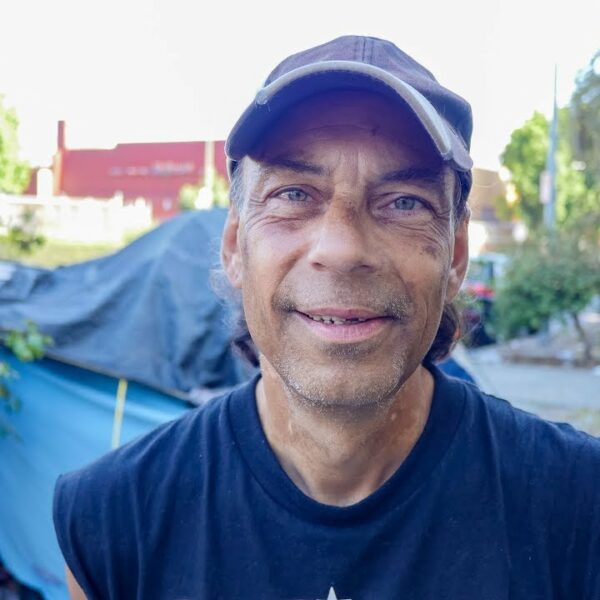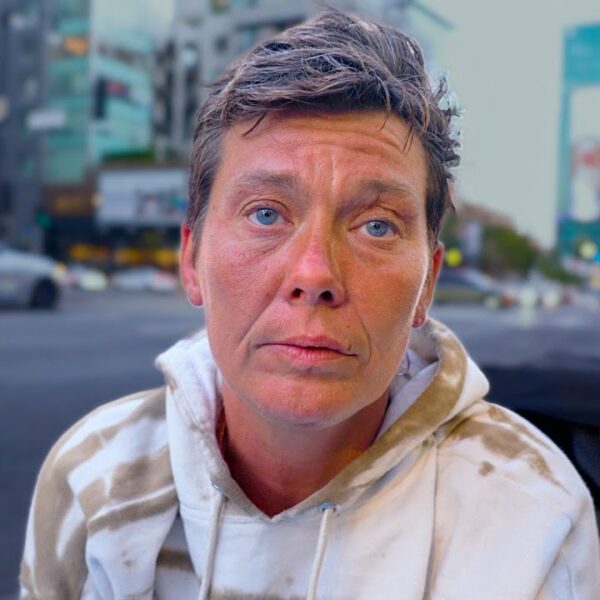Surfside, FL Doesn’t Want its Beachside Showers to Actually Be Used for Showering
Florida, the state vying for 50th place in everything good, has a new idea for criminalizing homelessness. Officials weren’t satisfied with banning food sharing and encampments – they now want to cut unhoused people off from one of the few resources they have for keeping clean while living on the streets.
It’s unclear how this is supposed to help anyone. Even NIMBYs, who love to complain about unhoused people being dirty, must be scratching their heads over this. Local homeless advocates within Florida have, of course, called this proposal out loudly for being both inhumane and bizarre.
Proposed Ordinance Would Further Criminalize Homelessness
The soap and shampoo ban is just one part of the proposed legislation. It would also “crackdown” on aggressive panhandling, overnight sleeping in public places, urinating or defecating on public property, and obstructing sidewalks and other public rights-of-way.
The actual wording of the soap ban is as follows:
“The use of the showers on the beach street ends should be limited to rinsing off in connection with beach and recreational uses and should not be utilized for full showering needs or washing of clothes, or any other uses involving chemical substances. Legislation should be considered that would regulate or prohibit the use of foreign or chemical substances, such as soaps, shampoos, and detergents, on the beachfront street ends showers.”
So, it’s pretty vague, probably intentionally so. By this wording, rinsing off after a day at the beach could be a violation if you used sunscreen during the day, which is a “chemical substance.”
We all know that they won’t be enforcing it that way, though, since enforcement is always selective when it comes to anti-homeless legislation like sit/lie laws, camping bans, food-sharing bans, and whatever else they come up with to keep unhoused people out of public view.
Why Is This Necessary?
It’s not. But as for what the Town Commission was thinking when they proposed it, this is what they had to say for themselves:
“Maintaining a safe, orderly, and sanitary environment on pedestrian and public places is essential to promote and preserve the health, safety, and welfare of all Surfside residents and visitors and ensure the use of public property for designated purposes.”
This is transparently a lie.
Undoubtedly, the designated purpose of a public shower is for the public to shower. Is it really necessary to legislate how they shower and what products they use?
Secondly, the wording betrays the fact that they think of the unhoused people as second-class citizens at best. When they say they’re concerned for “the welfare of all Surfside residents and visitors,” they don’t really mean all.
It seems the true motivation behind this ordinance is to keep beach showering facilities free for housed people to use without having to have their beach day “ruined” by the simple sight of an unhoused person.
Of course, homeless people are usually quite careful about timing their errands to ensure they use facilities like these at off-peak hours. Why? Because they want to avoid any hassle or unpleasant interactions with other people who feel they’re more entitled to use public facilities than the rest of us.
What Excuse Will They Come Up with to Make This Seem Less Heartless?
This being Florida politics, they may not need a cover story at all. Politicians in the state have been getting many scary things done while boldly saying the quiet part out loud.
But if I had to look at my NIMBY bingo card and pick out their likely defense to the backlash they’ve swiftly faced from this proposal, I would have to choose “But what about the environment?”
Now, I’m unfamiliar with the plumbing situation at the beach showers in Surfside, Florida. But regardless of the reality, it’s pretty likely that they’ll try to pivot the conversation away from the inhumane treatment they’re voting to enact on their fellow Floridians and redirect it toward the hypothetical environmental harm of soap and detergent runoff.
Don’t fall for this.
One, there’s no evidence that any environmental harm is happening. Two, if it was, that would be a reason to build shower facilities to handle wastewater properly, not a reason to cut people off from what could be their only resource for hygiene.
Three, the argument completely ignores the fact that both homelessness and environmental degradation are outcomes of the same system that places profit for the few above all else. It blames harm caused by billion-dollar companies squarely on the shoulders of the people who are already some of their most vulnerable victims.
The overwhelming majority of pollution comes from huge companies producing a quantity the average person can’t fully wrap their head around. Yet most of the blame falls on individuals who will produce the tiniest fraction of that amount over their entire lifetime.
We’re even less forgiving of the poorest people who have the fewest choices available to them. We’ve got this entirely backward, and that’s how the powerful polluters like it.
Floridians are well within their rights to be concerned about environmental damage. Many of their poorest residents have been facing the brunt of it for many years. And if that were the primary concern behind this proposal, it’s unlikely that this is what would have been proposed.
As a method for combatting the effects of climate change, this rates very, very low on the list of impactful actions. Far behind big-picture actions like holding businesses accountable for the environmental damage they do, and still far behind even smaller actions like ensuring wastewater from beach showers is appropriately collected or even supplying biodegradable soaps if that’s impossible.
But as we all know, that’s not the real point of this ordinance. The cruelty is the point.













